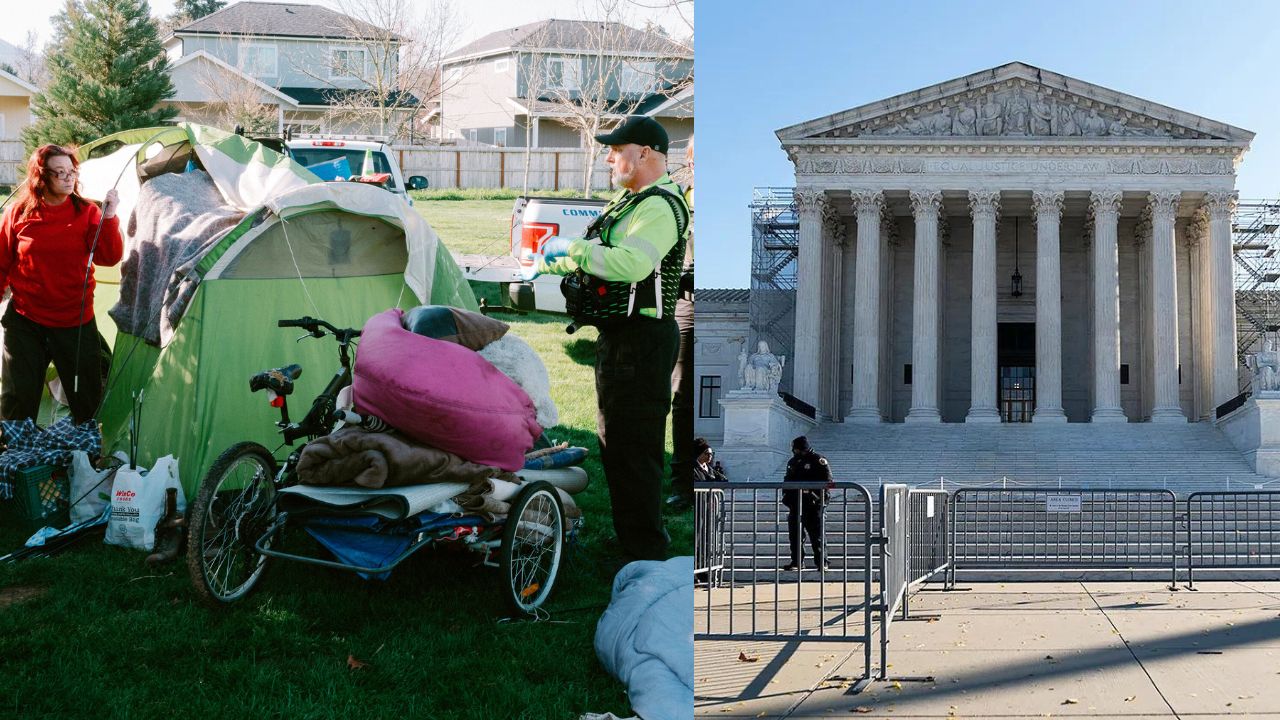Years ago, Helen Cruz decided to call a city park home, strategically situating her tent nearby the houses she cleaned for a living, yet couldn’t afford herself. For Cruz, 49, the location held significance; it enabled her to maintain proximity to her workplace. “People see the irony of it,” Cruz remarked. “I never looked it that way.”
Unbeknownst to Cruz at the time, her choice to reside in a Grants Pass, Oregon park would thrust her into a broader national discourse. This debate, which questions whether cities can address rising homelessness by penalizing those experiencing homelessness, is set to reach the Supreme Court on Monday.
In one of the most pivotal cases concerning homeless Americans to come before the Supreme Court in decades, justices will convene on Monday to consider whether issuing citations to individuals living on the streets constitutes “cruel and unusual” punishment, thus violating the Eighth Amendment.
The outcome of this case holds significant implications for city and state officials grappling with the challenge of addressing a surge in homelessness and the proliferation of encampments beneath bridges and in urban parks nationwide. Moreover, it has captured the attention of individuals residing in these encampments, who express concern over attempts to criminalize their situation rather than focusing on initiatives to provide shelters and affordable housing.
“People don’t choose to be in this situation,” remarked Cruz, who has since relocated to a church where she also fulfills caretaking duties. “We understand that parks are meant for families and children. However, the reality is, we have nowhere else to turn. There’s a severe shortage of housing options.”
Between 2022 and 2023, the Department of Housing and Urban Development reported a 12% increase in homelessness, underscoring a pressing issue in the United States. On any given night, over 650,000 individuals in the country find themselves without permanent shelter, with nearly 40% lacking adequate housing, according to the study.
Responding to this crisis, Grants Pass, a city in southern Oregon with a population of 38,000, opted to enforce anti-camping ordinances more rigorously. These regulations prohibit sleeping in public spaces with “bedding,” including sleeping bags or bundled-up clothing. The city asserts that these prohibitions apply universally, not exclusively to the unhoused.
However, critics argue that those pitching tents on sidewalks are predominantly homeless individuals. The debate over whether these ordinances target a specific class of people or certain behaviors will take center stage.
Mary Ferrell, executive director of the Maslow Project, a nonprofit aiding homeless children in Grants Pass, expressed concern over the broad application of the ordinances, stating, “I can see where the policymakers are coming from. I just think that it’s so broad to say we’re going to ticket you for just simply existing.”
In response, city officials contend that the Eighth Amendment’s prohibition against “cruel and unusual” punishment was not intended to encompass tickets issued by law enforcement. They argue that homelessness poses challenges to public safety and health, asserting that it is not a constitutional matter for the courts to adjudicate.
Lawyers representing Grants Pass emphasized to the Supreme Court that stretching the Eighth Amendment beyond its intended scope would not provide a solution to the pressing social issue of homelessness.

